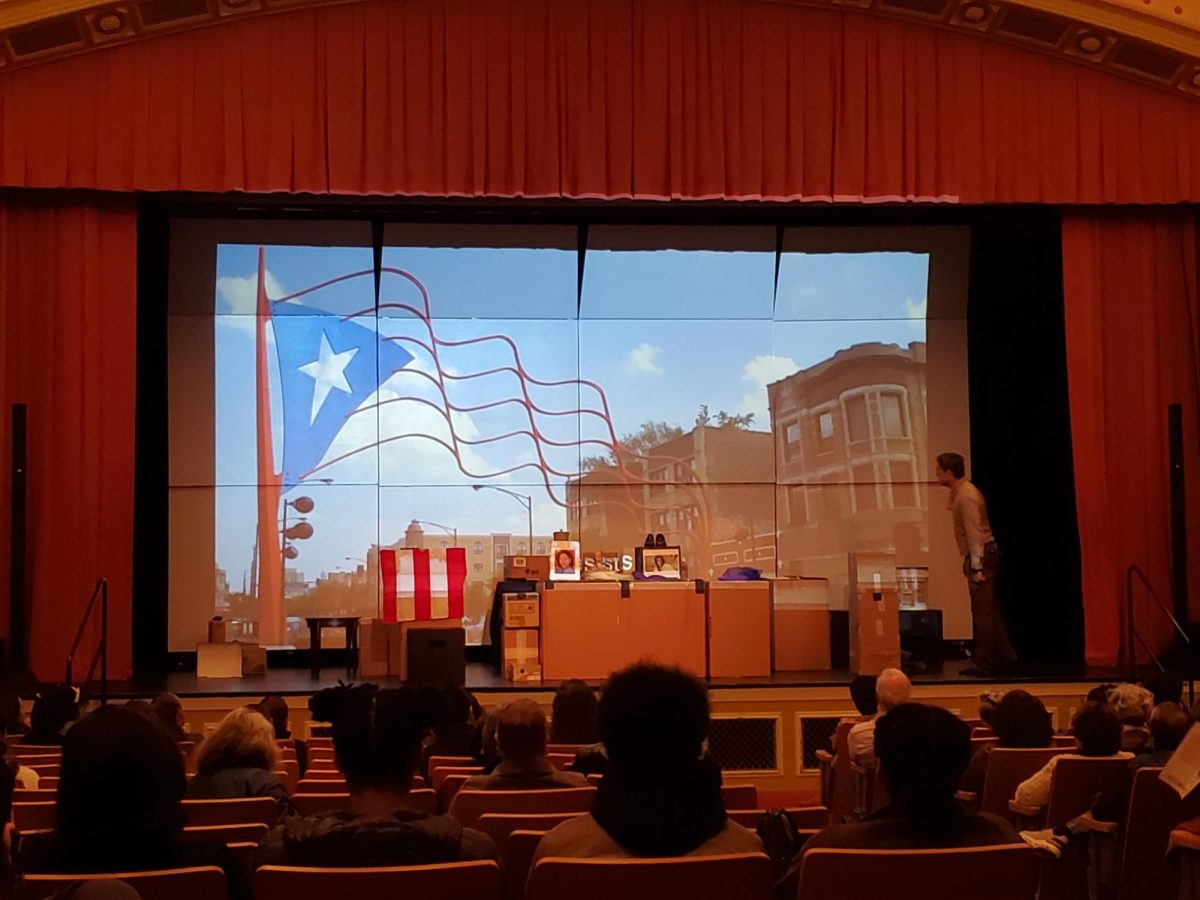Angel Vazquez’s “The Other Side Story” stole the show at Central Connecticut State University’s Torp Theatre in Davidson Hall on Thursday, Oct. 24.
The one-man show, hosted by the Latin American, Latino, and Caribbean Center (LALCC), marked the end of Hispanic Heritage Month, an after-party to a month of cultural celebration and remembrance. Featuring live music and humor, Vazquez played an unnamed man who traveled to New York to collect some items from an old apartment for his mother.
In the play, the protagonist meets Josefina, who walks him through the history of Puerto Ricans in New York. She explained to him how Puerto Ricans struggled since the beginning. She told the stories of people such as Sylvia Rivera, a gay liberation and transgender rights activist who participated in the Stonewall riots, Antonia Pantoja, an educational equity activist and founder of the ASPIRA Association and Tito Puente, a musical visionary. In addition to telling those stories, Josefina also told the stories of Puerto Ricans who were not big names. She told the stories of her own grandfather, who was a shoeshiner at the turn of the century, a soldier beaten to death for speaking Spanish and a plantation worker in Hawaii.
Each story told of forgotten figures such as Rivera held so much power for me. The struggles Rivera faced, paralleled by the phrase, “I got up,” was a powerful reminder of the strength it took not only to embrace and take pride in her identity in a time that denoted race-based discrimination, but discrimination based on her gender identity. It was a beautiful call-back to his emphasis on Puerto Rican pride and the flag that symbolizes it. During the story of the soldier, there was also a compelling parallel between the protagonist’s proclamation that you can’t be a “real” Puerto Rican if you don’t speak Spanish, and the Puerto Rican soldier beaten to death for speaking Spanish.
The performance was a breathtakingly heartfelt tribute to Puerto Rican culture and prior generations who walked, so that the new generations could run. Through crowd work, Vazquez quickly established a positive rapport with the audience, which, in an increasingly divided social climate, is a welcome surprise. The show felt like an invitation to glimpse into another culture through dance and music segments.
There were many moments where I, a person who is not Puerto Rican, felt very moved.
My personal favorite parts of the play revolved around Rivera’s story, Pantoja’s story and the segment about the 65th Infantry Regiment, an all-Puerto Rican military unit. Although I could not understand what the chant “¡Iré Irakú!” meant, the feelings of respect, love and remembrance for the fallen soldiers hung heavily in the air.
Vazquez did a wonderful job showcasing the history of Puerto Ricans in the United States, using current events and humor to connect the 150-year-long history of Puerto Rican influence on the East Coast to the here and now. Although the turnout was very small, this show still served as a long-awaited, underrated love letter to the culture, experiences and people, both past and present, that hail from Puerto Rico’s rich cultural heritage.
This show left me with new information about people who have had an impact on American culture that I never learned about in school. In turn, it left me with a newfound appreciation for Puerto Rican culture and the contributions that Puerto Ricans have made to the United States. I would encourage anyone to go the next time it makes its rounds.

